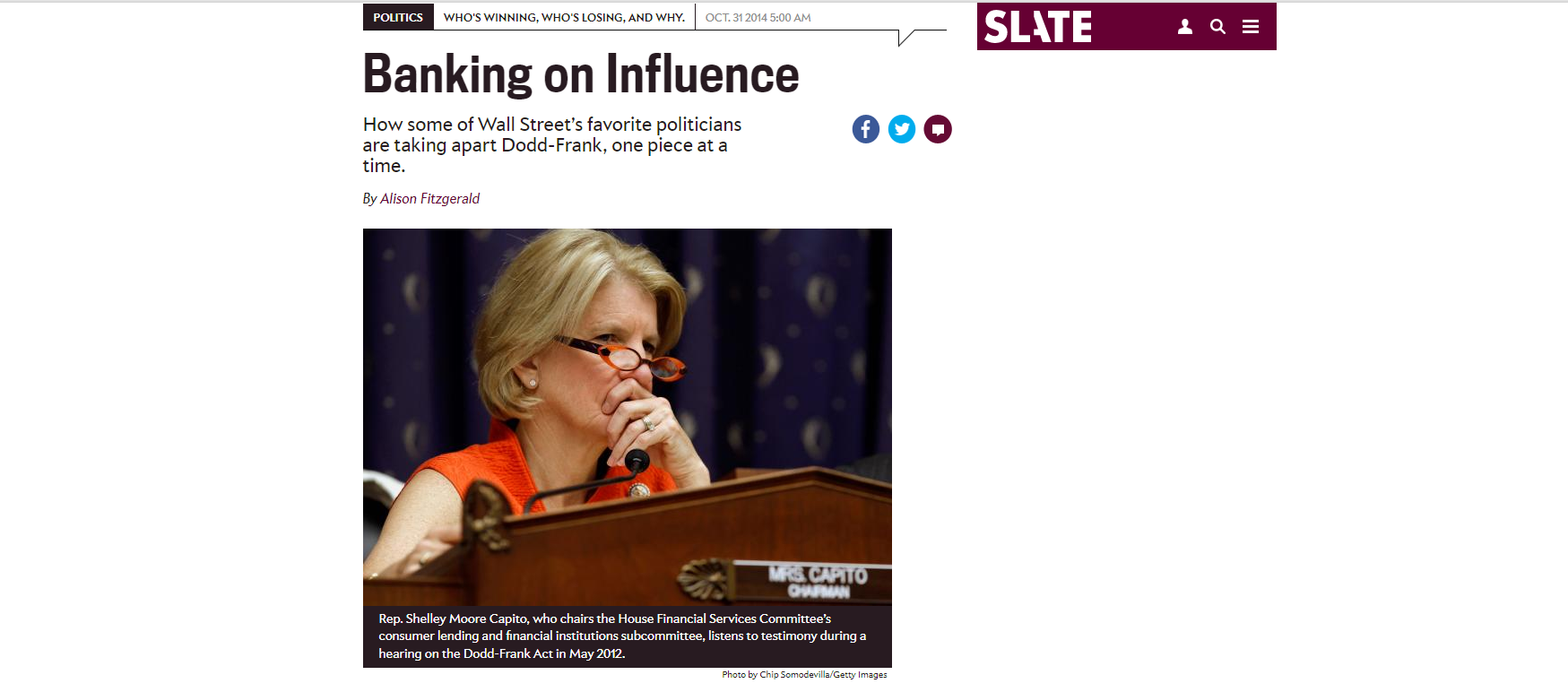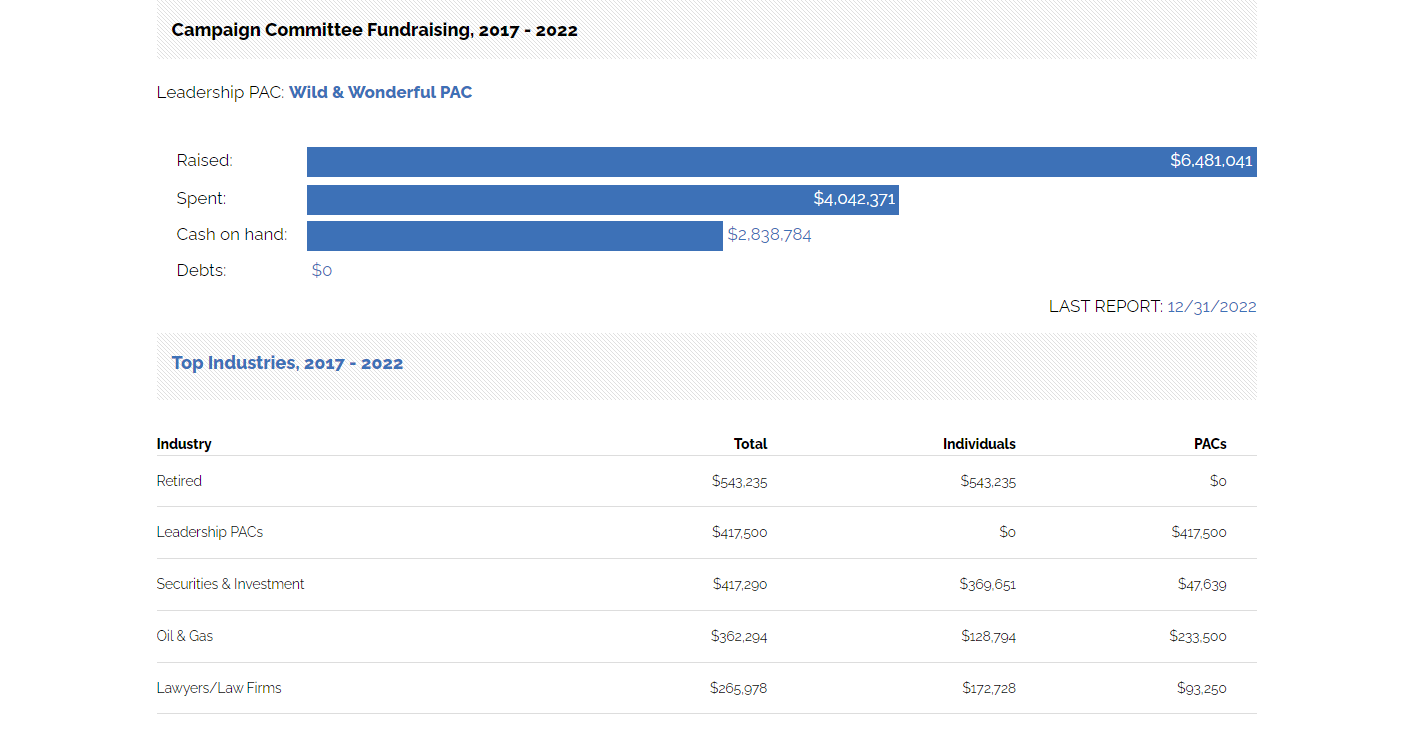Senator Capito responds to the bankruptcy crisis: “Where were the regulators?”
You wonder where the regulators were, Senator? Haven’t you worked most of your career to get rid of them?
Here is WV Senator Shelley Moore Capito on WV Metro’s Talkline discussing the recent bank failures:
“Where were the regulators? The regulators had to be looking at the SVB bank and saying to themselves the average amount of insured depositors at that bank was less than 10 percent,” she said, contending that percentage should have been significantly higher.
“So there was a heavy concentration of money from hedge funds and from the venture capital community. So why did the regulators not put a red flag on that? Why did the regulators not look at what they were doing when they were buying long-term financial instruments to get the higher rates? Yet they’re blaming the higher interest rates on their failure. How can they not see that coming?”
Where were the regulators? A good question, Senator. Perhaps, it’s time to stop and examine your long history with Dodd-Frank and its regulators.
Dodd-Frank was Congress’ response to the financial crisis that started in 2007. The legislation was passed and signed by President Obama in 2010. Then-Representative Shelley Moore Capito quickly became one of the earliest congressional critics of the law. For instance, here is an article from the Wall Street Journal in March 2011:
Q&A: Rep. Capito Takes On Dodd-Frank, Elizabeth Warren
And as this article from Slate in 2014 suggests, Dodd-Frank clearly became a “cause” for Representative Capito:

The article begins:
Rep. Shelley Moore Capito wants West Virginians to know she’s a defender of community banks. From her seat on the House Financial Services Committee, Capito argues, she has protected small local financial institutions from the overreach of aggressive regulators.
Among her biggest supporters, however, are the biggest banks in the world.
Capito, a Republican, is running for the West Virginia U.S. Senate seat that’s being vacated by Sen. Jay Rockefeller after 30 years.
She counts Citigroup and Goldman Sachs among her most generous campaign donors.
“She’s a reliable vote for all things Wall Street,” said Dennis Kelleher, president and CEO of Better Markets, a nonpartisan group that advocates for increased market oversight of financial institutions.
Fast forward to 2018 when Dodd-Frank was changed. From Grid earlier today:
A group of mid-size banks spent nearly $50 million on a lobbying blitz supporting 2018 legislation that eliminated oversight rules experts now say could have prevented the recent collapse of one its members, Silicon Valley Bank, or SVB.
That legislation, which received bipartisan support in Congress, eliminated key reforms instituted by the Dodd-Frank Act in 2010 for banks with between $50 billion and $250 billion in assets — regulations developed after the last major financial crisis. The two-dozen mid-size banks that stood to benefit from the 2018 bill spent $46 million lobbying lawmakers and executive branch agencies over a key 18-month period while the legislation was being discussed and implemented, a Grid analysis has found.
And here was Senator Capito’s response to that bill’s passage:
“For years, our smaller financial institutions in West Virginia have struggled under the weight of burdensome Dodd-Frank regulations. With this legislation, the Senate sent a clear message that those days are over. I was proud to help pass this bipartisan bill that will deliver the most significant reform of Dodd-Frank in nearly a decade and provide commonsense regulations for Main Street businesses, community banks, credit unions, and smaller financial institutions in West Virginia. I was also glad to see that many of the priorities I have long advocated for—dating back to my days in the House—are reflected in the bill. Hardworking West Virginians deserve a fair shot and a chance to succeed, and this legislation will give them that chance.”
Following the money
As was noted in that 2014 Slate article, the big banks and the banking industry were among her biggest donors. Have things changed? I decided to check. From the most recent report from Open Secrets, here is where Capito’s leadership PAC gets its money:

So Capito has taken in $417,290.00 from "Securities & Investments" -- even more than she has received from "Oil & Gas." Like questions about her past opposition to Dodd-Frank, this did not come up in the Metro News interview. Kercheval, as he has frequently done in the past, did not push Capito on any of her answers and I would not expect any WV reporter/stenographer to ask her about it.*
By the way, WV’s Joe Manchin was one of 17 Democratic senators who voted to weaken Dodd-Frank in 2018. Manchin was asked about his vote earlier this week:
Asked Manchin if he would vote the same way as he did in 2018 on the Dodd-Frank roll back: "Oh, no, you look at it differently now. You’d never thought this would have happened in the smaller banks.”
— Manu Raju (@mkraju) March 14, 2023
Asked if he’s open to more regulations now. “I'm open to making adjustments…”
That's right, Joe. Who could have predicted it?
*Yesterday, Capito held one of her online Q & A sessions with WV's stenographers. From limited coverage of the event, it doesn't appear that she was asked any questions about the topic.